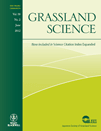
GRASSLAND SCIENCE
Scope & Guideline
Transforming understanding of grassland ecosystems.
Introduction
Aims and Scopes
- Grassland Management and Utilization:
Research on sustainable practices for managing grasslands, including grazing strategies, fertilization, and the integration of crops and livestock systems. - Plant Physiology and Genetics:
Studies exploring the physiological responses of grass species to environmental stressors, genetic diversity, and the genetic improvement of forage crops. - Ecological Dynamics and Biodiversity:
Investigations into the ecological interactions within grassland ecosystems, including plant community dynamics, soil health, and microbial interactions. - Remote Sensing and Technological Applications:
Utilization of drones and remote sensing technologies for monitoring grassland health, species identification, and precision agriculture. - Nutritional Quality and Feed Science:
Research focused on the nutritional evaluation of forage species, silage quality, and the impact of feed composition on livestock performance.
Trending and Emerging
- Technological Innovations in Monitoring:
An increasing emphasis on the use of drones and remote sensing technologies for monitoring grassland health and productivity has emerged, allowing for more precise management strategies. - Climate Resilience and Adaptation Strategies:
Research focused on the effects of climate change on grassland ecosystems and the development of resilient grass species is on the rise, reflecting a growing concern for sustainability in the face of environmental changes. - Biotechnological Advances in Forage Improvement:
Emerging studies on genetic modification and biotechnological applications to enhance forage quality and stress resilience are gaining traction, indicating a shift towards more advanced agricultural practices. - Microbial Interactions and Soil Health:
An increasing focus on the role of soil microorganisms in grassland ecosystems and their impact on plant health and productivity is evident, reflecting a broader interest in soil health as a foundation for sustainable agriculture. - Nutritional Science and Animal Performance:
Research exploring the interactions between forage quality and livestock nutrition, particularly in relation to health and productivity, is trending upwards, emphasizing the importance of quality feed in livestock systems.
Declining or Waning
- Traditional Crop-Livestock Systems:
Research on conventional integrated crop-livestock systems has decreased, potentially due to a shift towards more innovative and sustainable practices that emphasize ecological balance. - Basic Soil Chemistry Studies:
There appears to be a waning interest in basic soil chemistry without a direct application to grassland management or productivity, as more applied studies gain prominence. - Overgrazing and Degradation Studies:
While still relevant, the frequency of studies specifically focusing on the impacts of overgrazing on grassland degradation has diminished, possibly as more focus shifts to restoration and management strategies.
Similar Journals
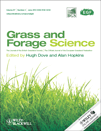
GRASS AND FORAGE SCIENCE
Transforming Agricultural Practices with Cutting-Edge ResearchGrass and Forage Science is a premier journal published by Wiley, dedicated to advancing the fields of agronomy and crop science, as well as environmental science management. With its ISSN 0142-5242 and E-ISSN 1365-2494, this esteemed journal has been a cornerstone of scholarly communication since its inception in 1946, and it continues to provide critical insights into the cultivation and sustainability of grasslands and forage systems through to 2024. Recognized within the academic community, it holds a distinguished Q1 ranking in Agronomy and Crop Science and a Q2 ranking in Management, Monitoring, Policy and Law, highlighting its significant impact and contribution to these essential domains. Researchers, professionals, and students alike benefit from the rigorous peer-reviewed articles that address contemporary challenges and innovations in land management, grassland farming, and ecological sustainability. While the journal operates under a subscription model, its breadth of expertise makes it an invaluable resource for anyone engaged in agricultural and environmental sciences. In an era where sustainable practices are paramount, Grass and Forage Science stands at the forefront, driving the conversation and fostering advancements in the way we manage and utilize our natural resources.

Regional Environmental Change
Navigating the Challenges of Environmental ChangeRegional Environmental Change, published by SPRINGER HEIDELBERG, is a leading journal dedicated to the critical field of Environmental Science, specifically focusing on the global and planetary changes affecting our regional environments. Since its inception in 2005 and continuing through 2024, the journal has been a pivotal platform for disseminating cutting-edge research, insights, and methodologies that address pressing environmental issues. With an impressive Scopus rank, placing it in the top 30% of journals in its category, Regional Environmental Change (ISSN: 1436-3798; E-ISSN: 1436-378X) showcases high-quality academic articles that engage with the multifaceted impacts of environmental shifts, providing researchers, professionals, and students with vital knowledge and data. Although the journal does not currently offer Open Access, it remains a crucial resource for those committed to understanding and mitigating the effects of environmental change on regional ecosystems and communities.
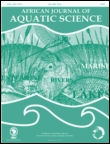
AFRICAN JOURNAL OF AQUATIC SCIENCE
Empowering research to protect our vital water resources.AFRICAN JOURNAL OF AQUATIC SCIENCE, published by TAYLOR & FRANCIS LTD, is a premier scholarly journal dedicated to the field of aquatic science, ecology, and environmental management, playing a crucial role in advancing research and knowledge in these vital areas. With an impressive Q2 ranking in both Aquatic Science and Ecology, Evolution, Behavior and Systematics, the journal seeks to publish high-quality research encompassing a wide range of topics related to freshwater and marine ecosystems, including biodiversity, conservation strategies, and the impacts of climate change. Featuring a rich history of publication from 2000 to 2024, the journal not only embraces rigorous peer review but also aims to foster collaboration and dialogue among researchers, practitioners, and students interested in aquatic environments. Readers will find that the journal’s commitment to impactful scientific communication is reflected in its notable rankings within the Scopus database, making it an essential resource for those engaged in aquatic research and management.

Folia Oecologica
Connecting Global Scholars in Ecological Studies.Folia Oecologica is a distinguished open-access journal published by WALTER DE GRUYTER GMBH, focusing on critical research in the fields of agricultural and biological sciences, ecology, and forestry. Established as a vital platform for the dissemination of knowledge, this journal has been providing free access to its valuable content since 2017, catering to an international audience engaged in environmental and ecological studies. With its ISSN 1336-5266 and E-ISSN 1338-7014, Folia Oecologica has earned notable ranks in Scopus, placing it in the 62nd percentile for Agricultural and Biological Sciences and the 50th percentile for Environmental Science. The journal's commitment to high-quality research is reflected in its positions in the Q2 and Q3 quartiles across various categories in 2023. As it converges years from 2006 to 2024, Folia Oecologica continues to foster scholarly dialogue and collaboration among researchers, professionals, and students, making significant contributions to the understanding and preservation of our ecological systems.
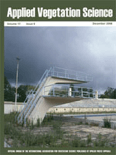
APPLIED VEGETATION SCIENCE
Fostering knowledge for effective environmental stewardship.Applied Vegetation Science is an esteemed journal published by Wiley, dedicated to advancing the field of vegetation science. With a focus on ecology and nature conservation, this journal serves as a vital resource for researchers, professionals, and policy-makers alike. It holds an impressive Q1 ranking in Ecology and Nature and Landscape Conservation, and a Q2 ranking in Management, Monitoring, Policy and Law, positioning it among the top quartiles of its field as of 2023. The journal, with its ISSN 1402-2001 and E-ISSN 1654-109X, encompasses research spanning from its inception in 1998 to 2024, making it a rich resource for trends and developments in vegetation studies. While it is not currently an open-access publication, Applied Vegetation Science continues to uphold rigorous scientific standards and provides critical insights into managing and preserving ecosystems. Its impactful contributions are reflected in its strong Scopus rankings, solidifying its reputation as a cornerstone publication for the study and management of vegetation.
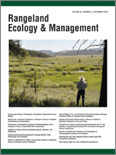
Rangeland Ecology & Management
Advancing Knowledge in Rangeland Ecology and ManagementRangeland Ecology & Management, published by ELSEVIER, is a leading academic journal dedicated to the interdisciplinary exploration of varied aspects of rangeland ecosystems, including their sustainable management and conservation. With an ISSN of 1550-7424 and an E-ISSN of 1551-5028, the journal has established itself as a vital resource in the fields of Animal Science and Zoology, Ecology, and Management, Monitoring, Policy and Law, achieving prominent Q1 quartile rankings in these categories as of 2023. The journal's significant Scopus rankings further attest to its impact, securing a position in the top percentiles of related fields. Published of noteworthy research from 2005 to 2024, Rangeland Ecology & Management serves not only as an academic platform but also fosters meaningful discussions on rangeland policy implications across the globe. The journal offers both subscription and Open Access options, ensuring that innovative research is readily available to researchers, professionals, and students passionate about ecology and sustainable practices. Join the Rangeland Ecology & Management community and contribute to advancing our understanding of rangeland ecosystems.
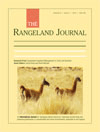
RANGELAND JOURNAL
Navigating the Complexities of Rangeland EnvironmentsRangeland Journal, published by CSIRO PUBLISHING, stands as a pivotal resource within the fields of ecology and environmental science. With an ISSN of 1036-9872 and an E-ISSN of 1834-7541, this journal has been disseminating critical research findings from 1998 to 2024, particularly focusing on the intricate dynamics of rangelands and their ecological significance. The journal is recognized for its contributions to the Q3 category in both Ecology and Ecology, Evolution, Behavior and Systematics, demonstrating its relevance in advancing scholarly discourse among researchers and professionals alike. Furthermore, with Scopus ranking it in the 57th percentile within its respective categories, the Rangeland Journal serves as an essential platform for fostering academic exchange and promoting sustainable management practices in rangeland environments. While currently not an open-access publication, it remains a vital institution for those dedicated to the stewardship and study of these unique landscapes.

BIOLOGY AND ENVIRONMENT-PROCEEDINGS OF THE ROYAL IRISH ACADEMY
Pioneering Discoveries in Biological and Environmental ResearchBIOLOGY AND ENVIRONMENT - PROCEEDINGS OF THE ROYAL IRISH ACADEMY serves as a vital platform for advancing knowledge in the rapidly evolving fields of biological and environmental sciences. Published by the esteemed Royal Irish Academy, this journal, with an ISSN of 0791-7945 and an E-ISSN of 2009-003X, offers a rich compilation of research articles, reviews, and proceedings that cater to the academic community in Ireland and beyond. Since its inception in 1993 and continuing through to 2024, the journal has positioned itself as a valuable resource within the Q4 category in Agricultural and Biological Sciences and Environmental Science, as detailed by the 2023 Scopus rankings. While not currently offering open access, its contributions significantly impact understanding and discussions surrounding ecological and biological challenges. Researchers, professionals, and students alike will find that the journal not only reflects current trends, but also pushes the boundaries of research, making it an essential read for anyone invested in the study of the natural world.

Agronomy-Basel
Empowering Innovation in Agronomy and Crop ScienceAgronomy-Basel is a leading international journal dedicated to advancing the field of agronomy and crop science, published by the respected MDPI. Since its inception in 2011, this open-access journal has provided a vital platform for the dissemination of high-quality research, featuring innovative studies and reviews that contribute to the understanding of agricultural practices and crop management. With an impressive impact factor and ranked in the Q1 quartile of its category for 2023, Agronomy-Basel has established itself as a premier resource in the realm of Agricultural and Biological Sciences, achieving a commendable rank of #62 out of 406 in its field, placing it in the 84th percentile. The journal targets researchers, professionals, and students who are dedicated to enhancing agricultural sustainability and productivity. Located in Basel, Switzerland, the journal's commitment to open access empowers global accessibility to flourishing agricultural advancements, thus fostering collaboration and innovation across the globe.
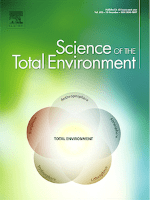
Science of The Total Environment
Driving Change Through Comprehensive Environmental ResearchScience of The Total Environment, an esteemed journal published by Elsevier, holds a significant position in the field of environmental science, encompassing critical areas such as Environmental Chemistry, Environmental Engineering, Pollution, and Waste Management and Disposal. With an impressive impact factor and ranked in the Q1 quartile across its categories for 2023, the journal is recognized for its high-quality research output and contribution to environmental sustainability. Operating from its base in the Netherlands, the journal has been a valuable resource since its inception in 1972, welcoming innovative studies that address complex environmental challenges. Its notable rankings—such as Rank #9 in both Environmental Sciences and Pollution—underscore its relevance and influence in the academic community. Although the journal currently does not provide an open access option, the robust findings and discussions presented within its pages continue to foster a deeper understanding of environmental issues. Science of The Total Environment is an essential platform for researchers, professionals, and students dedicated to advancing knowledge and solutions in the rapidly evolving field of environmental science.